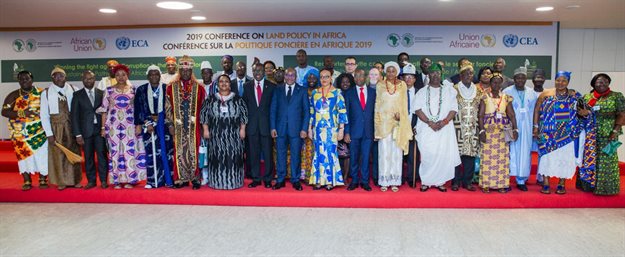Technology, innovation can help halt land sector corruption in Africa - AfDB

Boamah also called for the deployment of more financial and human resources to land policy development, “especially in rural areas and among the most vulnerable”.
The biennial conference, organised by the Land Policy Centre, provides a central platform for African stakeholders to network and deepen their commitment to land policy development, implementation and monitoring, through access to knowledge and evidence-based policy-making.
This year’s dialogue, hosted by the African Development Bank, is on the theme: 'Winning the fight against corruption in the land sector: Sustainable pathways for Africa’s transformation'.
Many forms of corruption
According to Transparency International, globally, one in five persons has paid a bribe for a land service. In Africa, every second, a client of a land administration service has paid a bribe.
“This corruption takes many forms — bribery or illicit land transactions is just one example. Land developers and speculators specifically target countries with weak governance systems. Local powerful elites are also more likely to manipulate such systems to serve narrow ends not to benefit the public,” Boamah noted.
Côte d'Ivoire justice minister Sansan Kambile called on African states to prioritise land tenure security as a development objective.
“Without land tenure security, and the various implications, no development can be sustainable. It is a collective responsibility which we must pursue to leave a worthy legacy for future generations,” he said. Kambile said the Côte d'Ivoire government is keen to see workable outcomes from the Abidjan meetings for adoption into its land administration system.
Equitable distribution
In her welcome remarks, Sacko Correia, commissioner for agriculture and rural economy at the African Union Commission, noted that corruption in the land sector has undermined cohesiveness and led to conflicts on the continent.
“For us to win the fight against corruption, we must ensure that land is equitably distributed and accessed by all, most especially by women, youth and other vulnerable groups,” she said, noting that although women contribute significantly to agriculture production in Africa, they enjoy less rights to land.
She called on African governments to ensure that land management processes are transparent, accountable, efficient and responsive to the new challenges of climate change, natural disasters and environmental degradation.
























